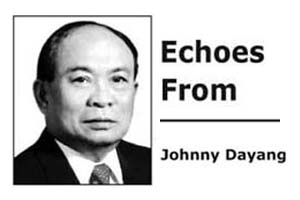BY JOHNNY DAYANG
*
DESPITE the eight petitions asking the Supreme Court to declare the Anti-Terrorism Law illegal, certain sectors are doubtful the edict, even if its defects are corrected, can be credibly executed given President Rodrigo Duterte’s friendly alliance with the New People’s Army (NPA).
To assuage the growing dissent against a hastily approved law, the President, in a nationally televised address, tried calming down public anger, saying: “For the law-abiding citizen of this country, I am addressing you with all sincerity, do not be afraid if you are not a terrorist.”
Still, some sectors remember the chilling declaration Duterte made in the Davao Trade Expo 2013, which justified the need to pay “revolutionary tax” to the insurgents. A year earlier, following the destructive impact of super-typhoon “Pablo,” he unabashedly disclosed to the press that he had given to the NPA some ₱ 125 million annually as revolutionary taxes.
Although the President was quick to argue the money did not come from government taxes but sourced through private donations, his statement was telling: “I cannot put (revolutionary tax) to a stop. So, factor that in your investments. If you pay to the BIR (Bureau of Internal Revenue), you prepare also for the NPA.”
Comparatively, this incident happened when Duterte was still city mayor. Today, as president, reasonable observers think the administration’s perspective on the anti-terror law will be to the best interest of the Filipino people, even if at times it has been sending ambivalent signals.
Of course, laws, no matter how well intentioned, can be overtaken by events. Edicts that were effective in the past can be challenged by new developments such that there is a need to introduce provisions that make these laws respond to current interpretations.
The anti-terror law, without doubt, carries the best intention to contain the 50-year menace that insurgency and, recently, terrorism have sown. Also factored in in this new edict is the key economic agenda of creating a stable and viable environment free of any form of extremism. As the country hastens its way to becoming a newly industrialized country, irritants that disturb peace and order always result in ambivalent indications to investors.
To calm down public outrage and reduce widespread fear the Anti-Terrorism Law will impinge on the people’s bill of rights, the High Tribunal’s ruling on the petitions will be significant in defining the parameters the government can invoke in implementing the law.
Erasing insurgency and neutralizing terrorism are not easy tasks. But to address them, the State must take drastic steps while the people, in communion with the good intention of the government, must be open to stricter regulations in achieving national stability.


